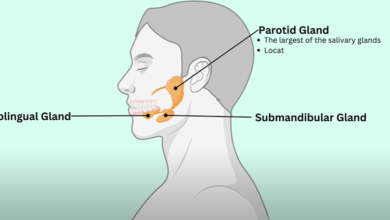Carnivore Diet Benefits: Everything You Need To Know

The Carnivore Diet is an all-meat, high-protein regimen focusing on animal products. It excludes plant-based foods to promote health benefits from a meat-centric intake.
Embarking on the Carnivore Diet means centring your meals exclusively on animal proteins and fats. Proponents argue that this approach can lead to weight loss, improved digestion, and a reduction in inflammation—owing these benefits to the elimination of carbohydrate-rich foods and plant-based fibres.
This diet challenges conventional dietary guidelines that typically include a variety of food groups, emphasizing the need for a balanced intake of nutrients. The Carnivore Diet’s simplicity attracts individuals seeking straightforward eating patterns, often those who’ve faced difficulties with other dietary regimens. Yet, it remains controversial among nutrition experts due to potential long-term health risks and the absence of specific vitamins and minerals that plants provide. Those considering this diet should consult a healthcare provider to ensure it aligns with their health needs.
Contents
- 1 The Carnivore Diet Phenomenon
- 2 Nutritional Breakdown
- 3 Weight Loss And Metabolic Impact
- 4 Digestive Health Benefits
- 5 Mental Clarity And Mood Enhancement
- 6 Carnivore Diet And Autoimmunity
- 7 Enhancing Physical Performance
- 8 Carnivore Diet: A Controversial Topic
- 9 Adopting The Carnivore Diet Safely
- 10 Success Stories And Testimonials
- 11 Future Research And Potential Developments
- 12 Conclusion
The Carnivore Diet Phenomenon

The Carnivore Diet Phenomenon stands out in a world where diet trends pop up daily.
It grabs attention with its bold approach: eat meat and drink water. That’s it.
Origins And Popularity Surge
The Carnivore Diet’s roots are in our ancestors’ habits. They hunted and ate meat to survive.
This ancient practice gained modern fame as people shared success stories. Celebrities and athletes tried it, too.
Online forums buzzed. Social media hype skyrocketed. Suddenly, the diet was everywhere.
Main Principles And What To Eat
The diet’s rule is simple: Skip it if it’s not meat. This includes even fruits and veggies.
- Focus on red meat: Beef, lamb, and pork lead the charge.
- Poultry and fish: These are good options, too. Think chicken and salmon.
- No carbs: Say goodbye to bread and pasta.
Water is the main drink. Some add bone broth.
Nutritional Breakdown
The Carnivore Diet focuses on eating animal products only. Understanding what nutrients this diet provides is crucial. Let’s dive into the nutritional content of a meat-only menu.
Macronutrient Profile
This diet is rich in proteins and fats. Carbohydrates are almost nonexistent. Here’s what to expect from a typical day:
- Protein: Essential for muscle growth and repair.
- Fat: Provides energy and helps in nutrient absorption.
- Carbohydrates: These are found in trace amounts in some animal products.
Vitamins And Minerals Presence
An all-meat diet provides several vital vitamins and minerals:
| Vitamin/Mineral | Presence in Meat | Role in Body |
| Vitamin B12 | High | Neurological function, blood formation |
| Iron | High in red meat | Oxygen transport, enzyme functions |
| Zinc | Abundant | Immune system support, DNA synthesis |
| Vitamin D | Present in fish | Bone health, immune function |
| Omega-3 Fatty Acids | High in fatty fish | Heart health, anti-inflammatory |
Some vitamins, like Vitamin C and fibre, are not found in meat. Experts suggest organ meats to fill some gaps. Always consult a healthcare provider before making diet changes.
Weight Loss And Metabolic Impact
The Carnivore Diet sparks intense discussions in weight loss circles. It cuts out carbs, focusing only on animal products. This approach can dramatically alter one’s metabolism. Body weight may drop. What happens inside the body on this all-meat diet? Let’s delve into the fat-burning and hormonal changes this controversial diet can bring.
Fat Burning And Ketosis
The Carnivore Diet leads the body into a state called ketosis. Carbs are usually energy for our bodies, but this diet has almost zero carbs. The body switches to burning fat instead, which can lead to potential weight loss benefits.
- The body transforms fat into ketones.
- Ketones become the primary energy source.
- Weight may reduce as fat stores decrease.
Influence On Insulin Sensitivity
Carbohydrates impact insulin levels the most. The Carnivore Diet removes carbs. This can lead to lower insulin spikes after eating.
| Normal Diet | Carnivore Diet |
| High-carb meals cause insulin spikes. | Low-carb intake can stabilize insulin levels. |
| Insulin sensitivity may decrease over time. | Reduced carbs may increase insulin sensitivity. |
Insulin sensitivity is crucial. It helps our cells use blood sugar efficiently. Improved sensitivity may support weight management and metabolic health.
Digestive Health Benefits
The Carnivore Diet simplifies eating by focusing on animal products. Many report improved gut health. Let’s explore how this diet improves digestion.
Impact On Gut Flora
Your gut is home to billions of bacteria. This diet can change that mix. Eating only meat can reduce some bacteria that need plant fibres. The result is a gut flora that may help digestion in some people.
- Less sugar and carbs mean fewer harmful bacteria.
- Gut microbiome changes can contribute to overall health.
- Good bacteria thrive with high-quality meat, contributing to a balanced gut.
Reduction In Bloating And Ibs Symptoms
This diet relieves bloating and IBS by cutting out foods thought to cause these issues.
| Common Triggers | Effect on Symptoms |
| Fibre | Less fibre can mean less gas production. |
| Processed Foods | Eliminated can reduce stomach discomfort. |
| Dairy | Some can tolerate it, others exclude it for added benefits. |
Dairy can be part of a Carnivore Diet, but some exclude it.
- Meat is easy to digest, leading to fewer digestive problems.
- Many individuals observe a significant drop in bloating after starting the diet.
- IBS symptoms often improve, likely because of the diet’s simplicity and the removal of certain plant-based irritants.
Mental Clarity And Mood Enhancement
Embarking on a Carnivore Diet journey might spark more than just physical transformation. Supporters often report enhanced mental clarity and an uplifted mood. Delving into these aspects might shed light on the cognitive benefits of this meat-centric lifestyle.
Brain Fog Reduction
Many individuals on the Carnivore Diet experience a significant drop in brain fog. This clearer thinking is often attributed to the elimination of inflammation-inducing foods. Here’s how the diet might help:
- Stable Blood Sugar Levels: Meat-based diets can stabilize blood sugar, reducing spikes and crashes.
- Fewer Additives: With fewer processed foods, your brain isn’t taxed by artificial ingredients.
- Ketones as Fuel: When your body burns fat for energy, the generated ketones can power the brain more efficiently.
Anxiety And Depression Considerations
The potential impact of a Carnivore Diet on anxiety and depression requires a nuanced look. Sample considerations include:
| Nutrient Intake | Impact on Mood |
| High Omega-3 Fats: | It may reduce inflammation and support brain health. |
| B Vitamin-rich Foods: | It is essential for neurotransmitter function and mood regulation. |
While anecdotal evidence points to mood enhancements, it’s crucial to approach these claims critically and consider personal nutritional needs.
Carnivore Diet And Autoimmunity
The link between the Carnivore Diet and autoimmunity sparks curiosity and hope. Autoimmune conditions result from the immune system attacking the body and lead to chronic inflammation. Some believe a meat-only diet could reduce inflammation, simplify food choices, and minimize triggers of autoimmune response. Let’s delve into the Carnivore Diet’s potential effects on autoimmunity.
Inflammatory Responses And Allergies
Inflammation is the immune system’s call to action; however, with autoimmunity, this response becomes the enemy. Common dietary allergens, like gluten and dairy, are absent in a Carnivore Diet. This omission could lessen the inflammatory triggers. A strict meat-based diet might help reset the immune system, relieving those with autoimmunity.
- Reduces dietary antigens: Potential irritants are removed.
- Simplifies eating patterns: Easier digestion, less stress on the gut.
- High in nutrients: Essential for immune system function.
Case Studies: Remission Of Symptoms
Anecdotal evidence shows a reduction in autoimmune symptoms among Carnivore Diet adherents.
| Condition | Before Diet | After Diet |
| Rheumatoid Arthritis | Joint pain, swelling | Marked symptom reduction |
| Psoriasis | Skin rash, irritation | Clearing of skin lesions |
| Multiple Sclerosis | Neurological symptoms | Improved physical function |
Each case hints at the Carnivore Diet’s role in easing autoimmune challenges. Research continues to uncover how dietary changes impact autoimmunity. Those interested should consult a healthcare provider before starting any new diet, especially one as restrictive as the Carnivore Diet.
Enhancing Physical Performance
The Carnivore Diet often raises eyebrows with its all-meat approach. But does it truly help athletes and gym enthusiasts? We’ll reveal how this meat-centric diet may impact muscle gains and recovery. Keep reading to see if going carnivore could unleash your peak performance.
Muscle Gain And Maintenance
Protein is the building block of muscle, and the Carnivore Diet is packed with it. With high protein intake, muscles repair and grow faster. This diet ensures you get ample amounts, fueling consistent muscle growth. Here’s how this protein-rich diet helps:
- Boosts protein synthesis: This leads to increased muscle size and strength.
- Provides essential amino acids: They’re vital for maintaining muscle health.
- Helps maintain a positive nitrogen balance: This signals your body to stay muscle-building.
Endurance And Recovery Improvements
The Carnivore Diet may seem counterintuitive for endurance, but think again! This diet’s high-fat content provides a stable energy source. This means you could perform longer without crashing. Check out how this diet could speed up your recovery time:
- Reduces inflammation: Meat is rich in nutrients that fight body stress after intense workouts.
- Enhances muscle recovery: Quick protein access speeds up repair post-exercise.
- Stabilizes energy levels: Fat offers long-lasting fuel to train harder and longer.
Carnivore Diet: A Controversial Topic
The Carnivore Diet triggers hot debates in nutrition circles. This meat-only diet intrigues and alarms health enthusiasts alike. Some swear by its benefits, while others wave red flags about its long-term effects. Let’s delve into the heart of this controversy, examining common misconceptions and scientific discussions surrounding this all-meat regimen.
Common Misconceptions
Many myths cloud the true nature of the Carnivore Diet. Here are a few unpacked:
- It’s just red meat: This diet includes all animal products, like fish and poultry.
- Vitamins are missing: Organ meats are rich in nutrients, contrary to what some believe.
- It’s unhealthy long-term: There’s still a need for research on long-term effects.
Scientific Debates And Evidence:
Experts are diving into studies to unearth the truths behind this diet.
| Aspect | Evidence | Final Thoughts |
| Digestion | Some studies suggest meat is easily digested. | More research is needed. |
| Heart Health | Debates on saturated fat and cholesterol levels continue. | Data is inconclusive. |
| Weight Loss | Reports of quick weight loss surface frequently. | Effects vary by individual. |
Guided by science, we keep exploring the secrets of the Carnivore Diet. As new studies emerge, the community stays alert to its unfolding narrative.
Adopting The Carnivore Diet Safely
The Carnivore Diet, focused on meat and animal products, is gaining popularity. Safety is critical when making any dietary change. Understand the proper methods to adopt this diet to ensure a successful transition.
Transitioning From A Mixed Diet
Start gradually. Introduce more meat while reducing other foods. This helps your body adjust. Consider this step-wise approach:
- Increase your protein intake by adding one more meat-based meal daily.
- Slowly eliminate plant-based foods over several weeks.
- Monitor how you feel. Stay hydrated and balance electrolytes.
Remember to choose a variety of meats to prevent nutrient deficiencies. Include beef, chicken, fish, and organic meats in your diet. This variety ensures a broader nutrient profile.
Monitoring Health Markers
Regular health checks are vital. They ensure the diet supports your body’s needs. Track the following health markers:
- Blood pressure for cardiovascular health
- Cholesterol levels to assess heart health
- Blood sugar levels to monitor metabolic responses
- Liver and kidney function to ensure these organs cope well
Consult with a healthcare provider before you start. Keep them informed about your diet and health markers. Adjust your diet based on their advice to maintain optimal health.
Success Stories And Testimonials
People everywhere are sharing how the Carnivore Diet changed their lives. These success stories highlight impressive health turnarounds, from weight loss to improved energy levels. Read on to discover the real-life experiences of those who adopted an all-meat diet.
Personal Journeys
- Mark’s Transformation: Once struggling with obesity, Mark took up the Carnivore Diet. He shed 50 pounds in six months and waved goodbye to joint pain.
- Amy Conquers Fatigue: Amy, burdened by chronic fatigue, found relief. She now enjoys boundless energy and credits her carnivorous eating pattern.
These stories showcase dramatic health improvements. They stem from a diet shift to exclusively animal products. Eliminating plant-based foods can seem to lead to remarkable outcomes for some.
Long-term Sustainment
| Name | Years on Diet | Notable Benefits |
| Jason | 4 Years | Maintained weight loss, improved digestion |
| Clare | 5 Years | Better skin health, sustained energy levels |
Did you know that prolonged adherence to the Carnivore Diet isn’t just possible; it’s a reality for many? Jason and Clare are prime examples. They report no returning health issues and have maintained benefits for years.
These individual tales are not just passing trends. They represent a consistent pattern among enduring Carnivore Diet enthusiasts. People sustain their new-found wellness and vigour over the years.
Future Research And Potential Developments
The Carnivore Diet has sparked curiosity across the nutritional science community. The call for deeper understanding and reliable guidelines becomes undeniable with evolving dietary trends. Future research and potential developments promise to reveal more about this meat-centric lifestyle. Let’s look ahead to projects currently unfolding and enhancements expected in the scientific tableau of the Carnivore Diet.
Ongoing Studies And Trials
In recent years, there has been a surge in carnivore diet enthusiasts. Yet, rigorous scientific studies still need to be made available. Important questions continue to surface, warranting thorough exploration. A host of new studies are ramping up, designed to uncover the effects of an all-meat diet on various health markers.
- Metabolic Impact: How diet influences weight, blood sugar, and cholesterol levels.
- Gut Health: Assessing the microbiome’s response to such a restrictive food intake.
- Longevity and Disease Risks: Determining potential connections between the Carnivore Diet and chronic diseases.
These trials aim to contribute valuable data, painting a clearer picture for healthcare professionals and diet specialists.
Evolving Guidelines And Recommendations
As evidence emerges, dietary guidelines adapt. Consensus in the nutritional world is pivotal. It dictates recommendations, steering public health initiatives.
| Anticipated updates to Carnivore Diet guidelines | |
| Area of Change | Potential Development |
| Vitamin Supplementation | Refined advice on preventing nutrient deficiencies |
| Food Quality | Guidance on meat sourcing and preparation for safety |
| Health Monitoring | Protocols for regular health check-ups and biomarker tracking |
Professional perspectives may shift, advocating a more tailored approach to the Carnivore Diet. Nutritionists and health authorities anticipate updates that consider individual needs, medical history, and lifestyle factors.
Groundbreaking research and authoritative insights hope to provide concrete answers. These answers will guide those choosing the Carnivore Diet toward a balanced and health-conscious approach.
Conclusion
Embracing a carnivore lifestyle could unlock surprising health benefits, yet it’s only for some. Before diving in, consult with a healthcare professional. For those seeking a dietary reset or with specific health goals, this meat-centric approach might be the transformation you’ve been searching for.




